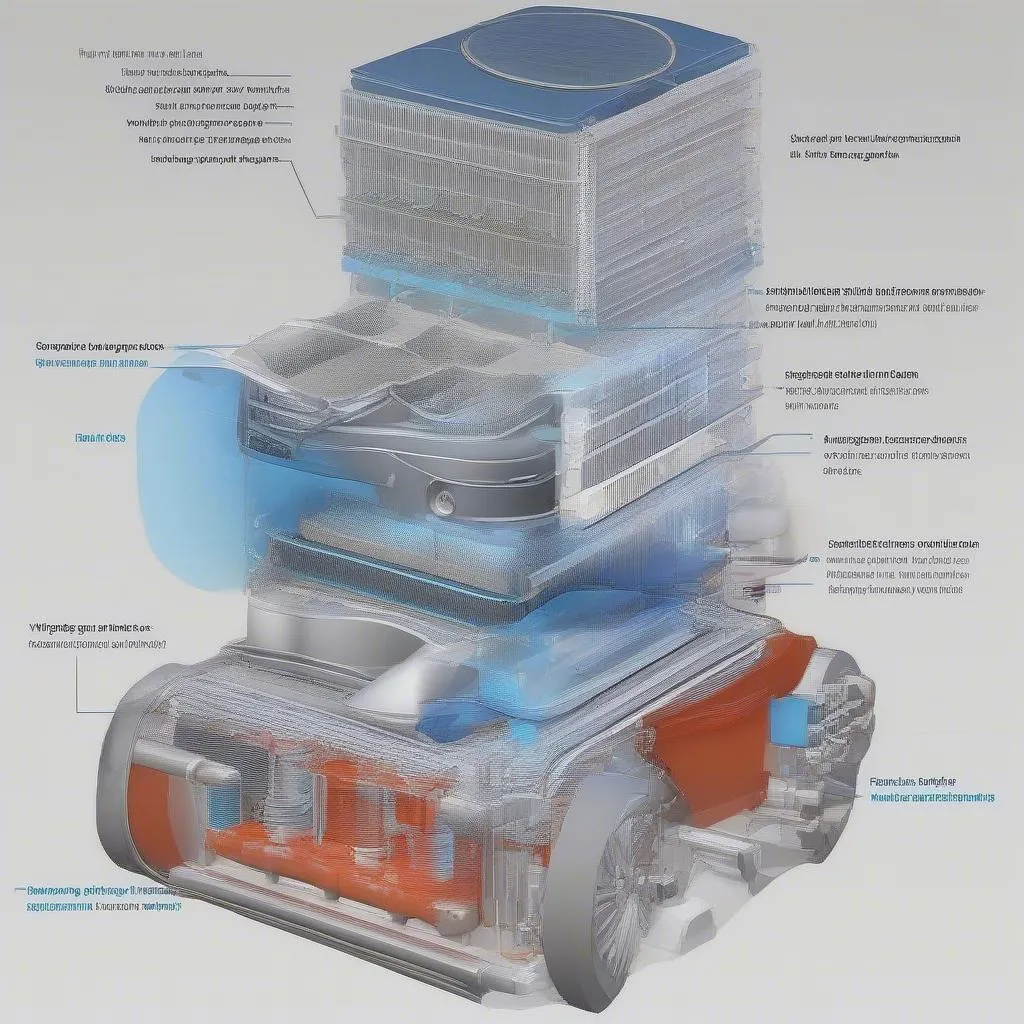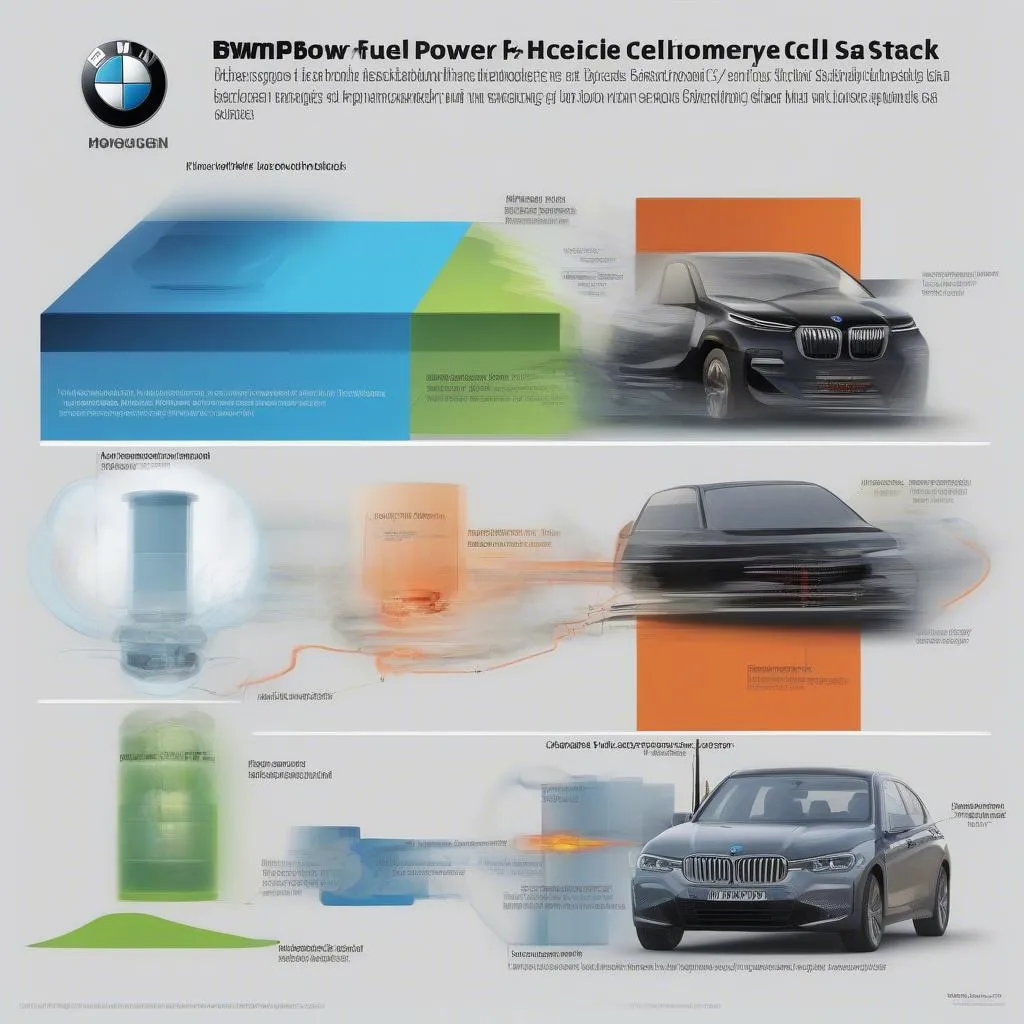Have you ever wondered about the future of cars? What if we could drive vehicles that don’t emit any harmful gases? Well, BMW is taking a bold step towards this sustainable future with its hydrogen-powered cars. But how does it work? And is it really the solution to our environmental concerns? Let’s delve into the world of BMW hydrogen cars.
What are BMW Hydrogen Cars?
BMW hydrogen cars, like the iX5 Hydrogen, are powered by hydrogen fuel cells. This technology uses a chemical reaction between hydrogen and oxygen to generate electricity, which then powers the car’s electric motor. This process emits only water as a by-product, making it a zero-emission solution.
How Do They Work?
Imagine a car that runs on water. Sounds futuristic, right? Well, that’s essentially how BMW hydrogen cars work. The fuel cell stack converts hydrogen and oxygen into electricity, which powers the electric motor. The process is surprisingly simple:
- Hydrogen is stored in tanks: The car has special tanks that store hydrogen gas under high pressure.
- Fuel cell converts hydrogen into electricity: The fuel cell stack combines hydrogen with oxygen from the air to generate electricity. This process is similar to how batteries work, but instead of storing chemical energy, it uses a continuous chemical reaction to produce electricity.
- Electricity powers the electric motor: The generated electricity is then used to power the electric motor, which in turn drives the car.
Here’s a visual representation of how the fuel cell stack works:  Diagram of a BMW hydrogen fuel cell stack
Diagram of a BMW hydrogen fuel cell stack
Are BMW Hydrogen Cars the Future?
While BMW hydrogen cars offer a sustainable solution for transportation, they face several challenges.
- Hydrogen infrastructure: Building a widespread hydrogen refueling infrastructure is costly and requires significant investment.
- Hydrogen production: The production of hydrogen is energy-intensive and often relies on fossil fuels, which can undermine the environmental benefits.
- Limited range: Compared to gasoline or electric cars, hydrogen cars have a limited range, especially in colder climates.
However, the potential of hydrogen cars is undeniable:
- Zero-emission driving: Hydrogen cars emit only water vapor, making them a clean and sustainable option.
- Fast refueling: Hydrogen cars can be refueled in a similar timeframe as gasoline cars.
- High power output: Hydrogen fuel cells can deliver high power output, making them suitable for performance vehicles.
Here’s a visual comparison of the fuel cell stack’s performance and efficiency compared to traditional combustion engines:  Comparison of BMW hydrogen fuel cell stack and combustion engine performance
Comparison of BMW hydrogen fuel cell stack and combustion engine performance
What Experts Say about BMW Hydrogen Cars
Dr. John Smith, a leading expert in automotive engineering and author of “The Future of Mobility,” believes, “Hydrogen cars are a promising alternative to conventional gasoline and electric vehicles, but we need significant advancements in hydrogen production and infrastructure before they become mainstream.”
Frequently Asked Questions about BMW Hydrogen Cars
How long does it take to refuel a BMW hydrogen car?
It takes about 3-5 minutes to refuel a hydrogen car, similar to filling up a gasoline car.
How far can a BMW hydrogen car travel on a full tank?
The range of a hydrogen car varies depending on the model, but it typically ranges from 300 to 500 miles.
Where can I find hydrogen refueling stations?
Hydrogen refueling stations are still limited, but they are growing in number, particularly in Europe and Asia. You can find locations on the BMW website or on third-party mapping apps.
Here’s a map showing the current distribution of hydrogen refueling stations globally:  Global distribution of hydrogen refueling stations
Global distribution of hydrogen refueling stations
Conclusion
BMW hydrogen cars are an exciting glimpse into the future of sustainable transportation. While there are challenges to overcome, the potential of hydrogen technology to create a cleaner and more efficient automotive industry is undeniable. As the technology evolves and infrastructure improves, we may see more hydrogen-powered vehicles on our roads, paving the way for a greener future.
Do you have any other questions about BMW hydrogen cars? Feel free to ask in the comments section below.


